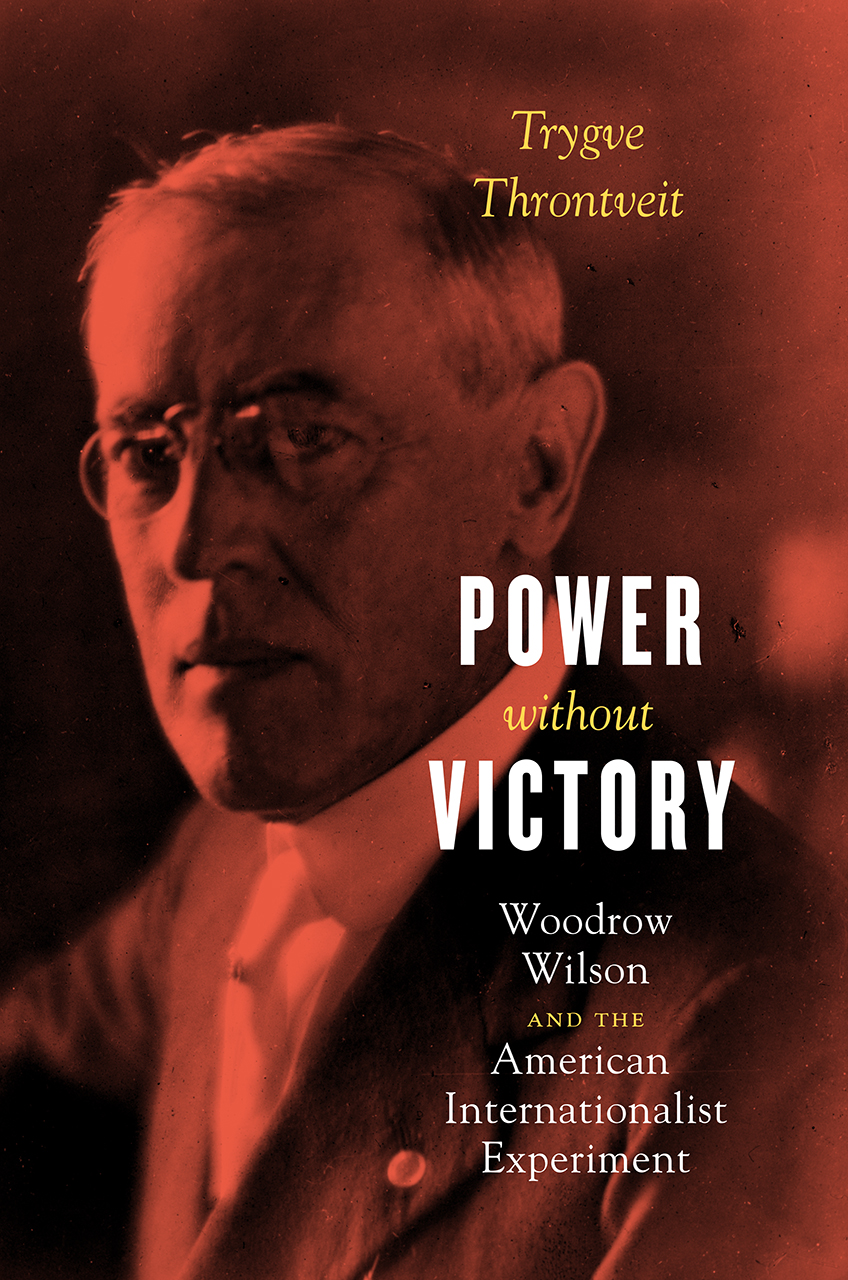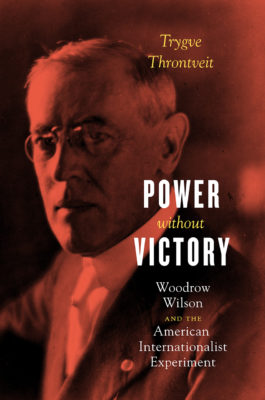Editor's Note
Amy Kittelstrom is professor of history at Sonoma State University and the author of The Religion of Democracy: Seven Liberals and the American Moral Tradition (Penguin, 2015). She specializes in modern intellectual history at the intersection of literature, philosophy, religion, and politics. Her research has been supported by fellowships from the Center for Religion and American Life at Yale, the Charles Warren Center for the Study of American History at Harvard, and the Center for the Study of Religion at Princeton. Her current book project is This Division in Our House: James Baldwin and the Myth of America.

A recent essay by the prominent author Ta-Nehisi Coates called Donald Trump America’s “first white President” because his white nationalist, white supremacist agenda is so blatant.[1] I liked the article but not the title, not the refrain. I get his point; Coates follows the twentieth-century writer James Baldwin in distinguishing people “who believe that they are white” from people who present with an appearance American society constructs as white, an important distinction for understanding the elephant of white nationalism in the American room of so-called democracy. But I always thought of Woodrow Wilson as America’s first white President because he brought Southern white supremacist nationalism back to Washington after Reconstruction was over, segregating the federal government and demoting or dismissing African-American civil servants with a sweep of his executive pen. I show every modern U.S. history class a clip from The Birth of a Nation (1915), the triumphant bugle heralding the Klansmen who save the town from the menacing men in blackface, and I say yes, President Woodrow Wilson screened that film in the White House.
 Trygve Throntveit seems to have wanted to dissuade me from this judgment in his vigorously argued Power Without Victory: Woodrow Wilson and the American Internationalist Experiment, which dramatically expands the closing chapter of Throntveit’s 2014 book William James and the Quest for an Ethical Republic (Palgrave Macmillan). The pair of monographs establishes Throntveit as a solid scholar of modern American thought who uses the Harvard philosopher William James (1842-1910) as an anchor for the pragmatist sensibility so vital for twentieth-century ideas in the social sciences and humanities as well as progressive reform and, as Throntveit shows, the internationalist vision of the first Democrat to win the Presidency after the Civil War, Woodrow Wilson. Throntveit carefully tracks Wilson’s youthful readings and writings—and possible absorptions of Jamesian philosophy—in order to build his case for Wilson’s pragmatic internationalism. Although Wilson was not a student of James’s, pragmatism was prominent enough and Wilson studious enough that some flavor of the practical instrumentalism of William James must have seeped into Wilson’s vision. And this is a good thing, according to Throntveit. “Though blind to the tragedy of racism in America, negligent in his stewardship of political freedoms in wartime, and guilty of imperialist incursions in Latin America,” Throntveit allows, “Wilson drew on pragmatist political ethics to develop a radically democratic vision for a peaceful postwar world, embodied in his plan for the League of Nations: a deliberative, remarkably egalitarian international polity, requiring significant concessions of sovereignty from members in order to facilitate cooperative change” (9-10). Throntveit takes on the job of acknowledging and minimizing Wilson’s shortcomings on race and pre-WWI international politics while giving him credit for a yet-vital internationalist vision traceable back to William James.
Trygve Throntveit seems to have wanted to dissuade me from this judgment in his vigorously argued Power Without Victory: Woodrow Wilson and the American Internationalist Experiment, which dramatically expands the closing chapter of Throntveit’s 2014 book William James and the Quest for an Ethical Republic (Palgrave Macmillan). The pair of monographs establishes Throntveit as a solid scholar of modern American thought who uses the Harvard philosopher William James (1842-1910) as an anchor for the pragmatist sensibility so vital for twentieth-century ideas in the social sciences and humanities as well as progressive reform and, as Throntveit shows, the internationalist vision of the first Democrat to win the Presidency after the Civil War, Woodrow Wilson. Throntveit carefully tracks Wilson’s youthful readings and writings—and possible absorptions of Jamesian philosophy—in order to build his case for Wilson’s pragmatic internationalism. Although Wilson was not a student of James’s, pragmatism was prominent enough and Wilson studious enough that some flavor of the practical instrumentalism of William James must have seeped into Wilson’s vision. And this is a good thing, according to Throntveit. “Though blind to the tragedy of racism in America, negligent in his stewardship of political freedoms in wartime, and guilty of imperialist incursions in Latin America,” Throntveit allows, “Wilson drew on pragmatist political ethics to develop a radically democratic vision for a peaceful postwar world, embodied in his plan for the League of Nations: a deliberative, remarkably egalitarian international polity, requiring significant concessions of sovereignty from members in order to facilitate cooperative change” (9-10). Throntveit takes on the job of acknowledging and minimizing Wilson’s shortcomings on race and pre-WWI international politics while giving him credit for a yet-vital internationalist vision traceable back to William James.
Woodrow Wilson grew up in Virginia after the Civil War. Throntveit assures the reader that he was not really Southern, as his parents had migrated from the North. Wilson did think slavery was essentially benevolent, though, and his father was pro-Confederacy—“an ardent states’-rights secessionist,” Throntveit says (88). States’ rights. It has been a long time since I saw a historian imply that the Civil War hinged on a question of states’ rights. When I teach the crisis I point out that nothing in the Republican party platform on which Lincoln was elected in 1860 proposed to interfere in any way whatsoever with any existing rights in any states, including Southern states’ rights to enslave human beings, so I think Throntveit has chosen this phrasing to try to distance Wilson from the Confederate cause. Indeed, throughout his treatment of Wilson’s decisions to institute segregation in the federal government, allow his name to be used to promote Birth of a Nation, and mount invasions and occupations in Haiti, the Dominican Republic, and Mexico, Throntveit uses a lot of “yes, but” elocutions. Yes, he is obliged to admit, Wilson turned a blind eye to racial oppression and became astonishingly passive when advisors advised oppressive things, but…but what?
Although I admire Throntveit’s patient spadework excavating Wilson’s bibliographic concurrences with William James, I am not convinced that Wilson shows the mind of a pragmatist or that the philosophical method that goes by the name of pragmatism is the most relevant frame for understanding what went right at Versailles and wrong at home for Wilson. Pragmatism is open-ended, experimental, curious, dialogic, and rooted in a keen sense of human fallibility and therefore the necessity of cooperation and mutual critique. Wilson may have read some William James, but dialogic he was not. Throntveit tries to soften the analytical import of Wilson’s white nationalism by saying he “acquiesced” in his cabinet’s wish to segregate the federal government, as though passivity redeemed vice (86). Yet while Wilson met with African-American leaders such as William Monroe Trotter, who brought to the Oval Office a petition of twenty thousand names protesting the plan to segregate the government, he did not listen. Indeed, he insisted that “the heart of the South desires the good of the Negro,” Throntveit reports (97). He really could have known better.
Instead of being a potentially great leader brought down by blind spots, Wilson’s deaf ear to African-American concerns shows that not only did he devalue them as people, he devalued the role of a democratic leader to heed popular opinion in general. Throntveit gives ample and welcome attention to the debates regarding American entrance to WWI in progressive publications, demonstrating the broad popular support for the League of Nations idea. One of the most prominent proponents of international deliberation, however—Jane Addams—appears only occasionally in Throntveit’s narrative. Yet it is her Women’s Peace Party that laid out a blueprint for the League in a set of resolutions Addams presented to President Wilson in 1915 (and which developed a set of principles Addams had first expressed—to an audience that included William James—in 1904).[2] Addams recounts her frustrations with Wilson’s leadership style because she believed so fiercely in participatory democracy. As Wilson moved to war, Addams wondered “whether any man had the right to rate his moral leadership so high that he could consider the sacrifice of the lives of thousands of his young countrymen a necessity?” It seemed that Wilson had never “offered himself as a willing instrument to carry out the people’s desires. He certainly did not dig the channels through which their purposes might flow and his own purpose be obtained because it had become one with theirs,” which is how Addams described the ethic of reciprocity so central to her work.[3] Wilson instead was a top-down administrator of his own vision. As Throntveit reports, one reason the League of Nations failed is that Wilson’s effort to sell the plan to Republican senators did not include listening (286).
Wilson’s vision so thoroughly assumed citizenship by and for people he believed were white, and his leadership so assumed that he knew what was best, either pragmatism is not a sufficient political philosophy for promoting true democracy or Wilson was no pragmatist.
Notes
[1] https://www.theatlantic.com/magazine/archive/2017/10/the-first-white-president-ta-nehisi-coates/537909/.
[2] Jane Addams, Peace and Bread in Time of War (Boston: G.K. Hall, 1960), pp. 255-67. The political philosophy of her 1904 address drives Jane Addams, Newer Ideals of Peace (New York: Macmillan, 1907).
[3] Jane Addams, Peace and Bread in Time of War (Boston: G.K. Hall, 1960), pp. 64, 65.

One Thought on this Post
S-USIH Comment Policy
We ask that those who participate in the discussions generated in the Comments section do so with the same decorum as they would in any other academic setting or context. Since the USIH bloggers write under our real names, we would prefer that our commenters also identify themselves by their real name. As our primary goal is to stimulate and engage in fruitful and productive discussion, ad hominem attacks (personal or professional), unnecessary insults, and/or mean-spiritedness have no place in the USIH Blog’s Comments section. Therefore, we reserve the right to remove any comments that contain any of the above and/or are not intended to further the discussion of the topic of the post. We welcome suggestions for corrections to any of our posts. As the official blog of the Society of US Intellectual History, we hope to foster a diverse community of scholars and readers who engage with one another in discussions of US intellectual history, broadly understood.
Grover Cleveland was the first Democrat to win the presidency after the Civil War. While the traditionsl belief about Woodrow Wilson is that he brought Jim Crow to Washington, I would argue that the Taft admistration extended the invitation to Jim Crow. Wilson was his “Plus One.”